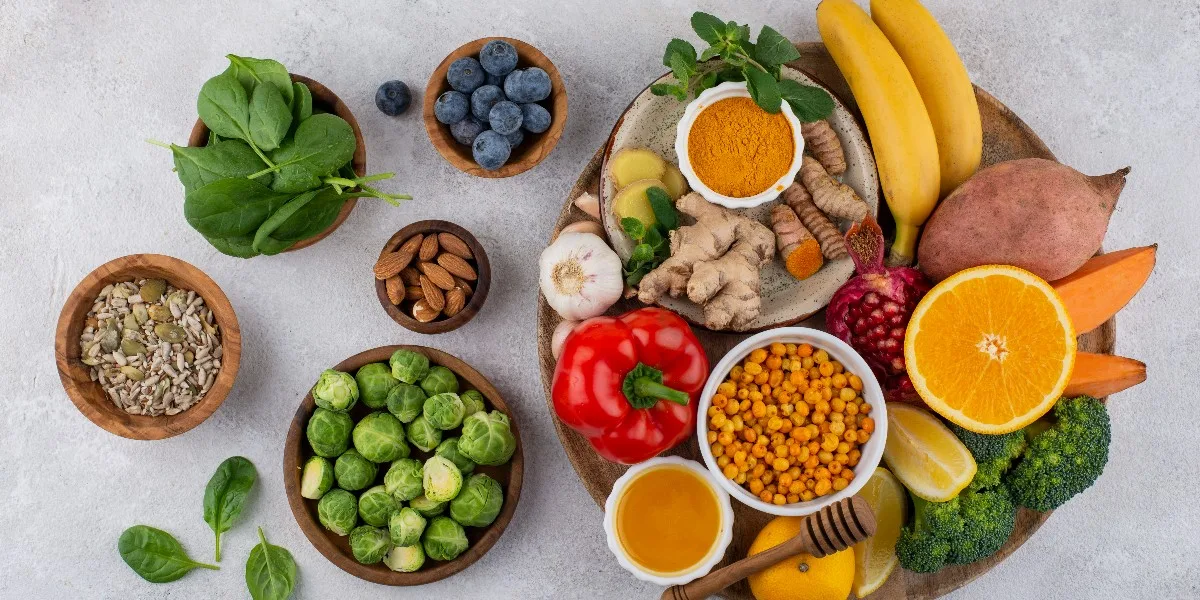Understanding Digestive Wellness
Digestive wellness is the cornerstone of overall health, encompassing the efficient functioning of the gastrointestinal system. This intricate system includes organs like the stomach, intestines, liver, and pancreas, all working synergistically to break down food, absorb essential nutrients, and eliminate waste. When digestive health is compromised, it can lead to various ailments such as bloating, constipation, and indigestion, which can adversely affect one’s daily life and well-being. Maintaining optimal digestive health is crucial as it not only ensures that our body utilizes nutrients effectively but also supports our immune system and enhances mental clarity. A healthy digestive system can significantly improve energy levels and reduce the risk of chronic diseases, thereby promoting a better quality of life.
Fiber-Rich Diet: The Foundation of Digestive Health
A diet abundant in fiber is essential for digestive health. Fiber, a type of carbohydrate found in plant-based foods, is indigestible by the body. Unlike other carbohydrates, fiber moves through the digestive system relatively unchanged, aiding waste elimination and promoting a healthy gut. There are two primary types of fiber: soluble and insoluble. Soluble fiber dissolves in water, forming a gel-like substance that slows digestion and helps regulate blood sugar levels. Insoluble fiber adds bulk to stool, facilitating its passage through the digestive tract. Both types are crucial for a balanced and efficient digestive process.
A high-fiber diet offers numerous benefits. It can alleviate constipation, support healthy weight management, and reduce the risk of heart disease, diabetes, and certain cancers. Additionally, fiber nourishes the gut microbiome by feeding beneficial bacteria. To increase fiber intake, include whole grains like oats, barley, and brown rice, along with fruits such as apples, berries, and oranges. Vegetables like carrots, broccoli, and leafy greens, as well as legumes such as beans, lentils, and chickpeas, should be dietary staples. Traditional Indian cuisine provides many fiber-rich foods, including dals, chickpeas, whole wheat roti, and fibrous vegetables like okra and spinach, which are essential for digestive health.
Hydration: The Key to a Smooth Digestive Process
Water plays a crucial role in digestion, helping to break down food so that the body can absorb nutrients effectively. Adequate hydration also softens stool, preventing constipation and promoting regular bowel movements. The amount of water one should drink varies based on factors such as age, gender, and activity level, but a general guideline is to consume at least eight 8-ounce glasses of water a day. This can help ensure that your digestive system functions smoothly.
Dehydration can lead to digestive problems, with common signs including dry mouth, fatigue, dizziness, and dark-colored urine. Chronic dehydration can result in more severe digestive issues, such as constipation and an increased risk of urinary tract infections. To stay hydrated, start your day with a glass of water and continue drinking at regular intervals. Carry a water bottle with you, set reminders to drink water, and consume hydrating foods like cucumbers, watermelon, and oranges. In addition to water, herbal teas, coconut water, and soups can contribute to your daily hydration needs. Foods with high water content, such as melons, strawberries, and citrus fruits, are also beneficial.
Probiotics: Balancing Your Gut Flora
Probiotics are live microorganisms that provide health benefits when consumed in adequate amounts. They help balance the gut flora, the community of bacteria living in the intestines, which is crucial for optimal digestive and overall health. Probiotic-rich foods can enhance digestion, boost immune function, and reduce the severity of certain gastrointestinal disorders. They may also help in alleviating symptoms of irritable bowel syndrome (IBS) and preventing diarrhea caused by antibiotics.
Traditional Indian diets include several probiotic-rich foods, such as yogurt (dahi), buttermilk (chhaas), and pickles (achar). These fermented foods are excellent sources of probiotics that can support gut health. To incorporate probiotics into your diet, consume fermented foods regularly. Adding a serving of yogurt or kefir to your breakfast, enjoying pickles with meals, or sipping on a glass of buttermilk can help maintain a healthy gut flora. While probiotic supplements can be beneficial, especially for those with specific health conditions, they are not always necessary for everyone. A diet rich in natural probiotic foods is typically sufficient for maintaining gut health.
Mindful Eating: Enhancing Digestive Efficiency
Mindful eating involves paying full attention to the eating experience. It includes being aware of hunger and fullness cues, savoring each bite, and avoiding distractions during meals. Practicing mindful eating can improve digestion by allowing the body to properly break down and absorb nutrients. It also helps prevent overeating and promotes a healthier relationship with food.
To practice mindful eating, begin by sitting down at a table without distractions such as television or smartphones. Chew your food thoroughly, take small bites, and savor the flavors and textures. Pay attention to your body’s signals of hunger and fullness. Slowing down during meals can enhance digestive efficiency and prevent issues like indigestion and bloating. It allows the stomach to signal the brain when it is full, reducing the likelihood of overeating. Avoiding distractions such as watching TV, scrolling through social media, or working during meals can improve digestion and make the eating experience more enjoyable. Focus on the food and the act of eating to promote better digestive health.
Physical Activity: Stimulating Digestive Function
Regular physical activity stimulates intestinal activity, which can help prevent constipation and promote regular bowel movements. Exercise also increases blood flow to the digestive organs, enhancing their efficiency. Activities such as walking, swimming, and cycling are excellent for promoting digestive health. These exercises stimulate the muscles in the gastrointestinal tract, aiding in the passage of food and waste.
Incorporating physical activity into your daily routine can be simple. Aim for at least 30 minutes of moderate exercise most days of the week. This can include brisk walking, jogging, or any other activity that gets your heart rate up. Certain yoga poses can also support digestive health. Poses such as the seated twist, child’s pose, and wind-relieving pose can help stimulate digestion and relieve bloating and gas. Consistency is key when it comes to physical activity and digestive health. Regular exercise not only improves digestion but also contributes to overall health and well-being. Make physical activity a regular part of your routine for the best results.
In conclusion, enhancing digestive wellness involves incorporating a fiber-rich diet, staying hydrated, consuming probiotics, practicing mindful eating, and engaging in regular physical activity. By implementing these strategies, individuals can experience improved energy levels, better nutrient absorption, and a reduced risk of chronic diseases. Long-term digestive health contributes to overall vitality and well-being, promoting a higher quality of life.
Image credit: Freepik




















